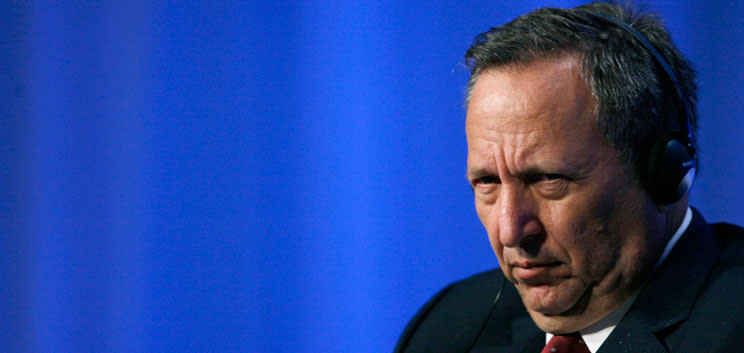Larry Summers Says the US Needs Much Higher Unemployment to Break Inflation

President Biden downplayed the likelihood of a recession in an interview with the Associated Press last week, and he repeated the point over the holiday weekend, citing a notable former Treasury Secretary for support.
“I was talking to Larry Summers this morning, and there’s nothing inevitable about a recession,” Biden told reporters Monday, referring to the prominent Democratic economist who served in both the Clinton and Obama administrations.
Summers, however, struck a very different note in a speech in London Monday, telling his audience that unemployment needs to rise sharply if the U.S. wants to get inflation under control. “We need five years of unemployment above 5% to contain inflation – in other words, we need two years of 7.5% unemployment or five years of 6% unemployment or one year of 10% unemployment,” he said.
Currently, the unemployment rate is 3.6%, but many economists expect that number to creep higher as the Federal Reserve continues to raise interest rates and withdraw liquidity from the economy. But Summers is mulling something far more intense than Fed officials currently appear to have in mind.
“The U.S. may need as severe monetary tightening as Paul Volcker pushed through in the late 1970s, early 1980s,” Summers said, citing the former Fed chief who famously raised rates sharply in his battle against stagflation, sparking a severe recession.
MarketWatch’s Jeffry Bartash made it clear that Summers is talking about real economic pain. “A lot of Americans would get hurt if Summers is right and high unemployment is needed to beat back inflation,” he wrote. “Put in starker terms, the U.S. would have to endure a second recession in three years and as many as 10 million people would have to lose their jobs.”
The Washington Post’s Jeff Stein made a similar point: “To state the obvious, a 5% unemployment rate would mean devastating joblessness for millions of poor American workers,” he wrote.
The bottom line: There is no agreement on just how likely a recession is over the next year or two, or how far the Fed will have to go to get inflation under control, but many think the odds of a downturn are rising. Goldman Sachs chief economist Jan Hatzius said over the weekend that the bank has updated its projections, doubling the probability of a recession to 30%.
“We now see recession risk as higher and more front-loaded,” Hatzius wrote. “The main reasons are that our baseline growth path is now lower and that we are increasingly concerned that the Fed will feel compelled to respond forcefully to high headline inflation and consumer inflation expectations if energy prices rise further, even if activity slows sharply.
